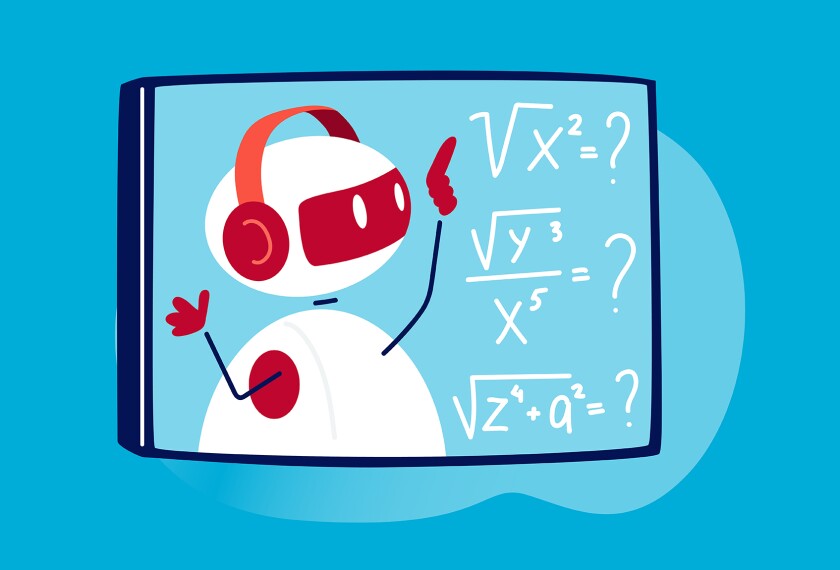Several thousand students worldwide participated in the second annual “” on May 18, yet another sign of artificial intelligence’s growing significance to schools.
“It’s been a year of extraordinary advancements in AI, and with that comes necessary conversations and concerns about who and what this technology is for,” said event organizer Cynthia Breazeal, who is the director of the Responsible AI for Social Empowerment and Education (RAISE) initiative at the Massachusetts Institute of Technology.
America’s K-12 schools are already using artificial intelligence for everything from personalizing student learning to conducting classroom observations, as Education Week described in a special report earlier this month. A coalition of influential groups such as Code.org and the Educational Testing Service recently launched an effort to help schools and state education departments integrate artificial intelligence into curricula, and the International Society for Technology in Education has made related learning opportunities available to and alike.
The RAISE initiative at MIT builds on those efforts by offering free classroom lessons on such topics as “” and “.” Overall, said MIT doctoral student Daniella DiPaola, who helped develop the Day of AI curriculum, the approach is to weave ethical, social, and policy considerations throughout technical explanations. Central to that aim is fostering discussion of the “” released by the White House’s Office of Science and Technology Policy (OSTP) in late 2022.
“We want to make sure societal impact is part of the process,” DiPaola said.
That’s exactly what the White House hoped to spur, said Marc Aidinoff, who helped lead the creation of the Bill of Rights during his time as OSTP’s chief of staff. Aidinoff spent the “Day of AI” working with a group of Massachusetts middle and high school students debating potential legislation for regulating the use of artificial intelligence in schools.
“Unlike the adults who talk about AI as this unknowable, all-powerful thing and let their fear take over, the students all treated AI as a knowable thing that’s complicated, but we can take action on,” he said afterward.
Aidinoff said he particularly appreciated the MIT RAISE initiative’s focus on engaging artificial intelligence as a potentially helpful companion, rather than a threat or silver-bullet solution. One benefit of that approach, he said, is an emphasis on considering specific use cases and threats rather than getting paralyzed by amorphous fears. Thinking about how AI can best support humans also encourages discussions of general themes and principles such as fairness that teachers are already accustomed to exploring with their students.
That sentiment was echoed by Kristen Thomas Clarke, a literacy and information technology teacher at the private Media-Providence Friends School in Pennyslvania. Now in her eighth year at the school, Thomas Clarke said she’s long mixed digital citizenship and media literacy activities into her lessons on coding and robotics. But in the wake of ChatGPT’s emergence this year, she and her head of school decided that a broader school-wide discussion of artificial intelligence was warranted.
That included use of MIT’s curriculum, which Thomas Clarke praised as highly interactive and effective at helping students see both the promise and potential pitfalls of AI, including discrimination that can result from biased training data.
But the most important impact, she said, was on the adults at her school.
“I think our initial reaction [to ChatGPT] was maybe a little bit of fear, like ‘what are the kids going to do with this?’” Thomas Clarke said. “But now I think of it more in terms of enhancing their knowledge than doing their homework for them.”






